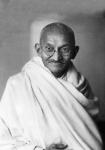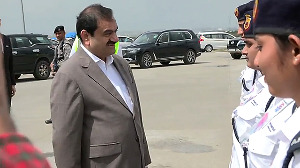I can recall that supreme sycophant the late Dev Kant Baruah, then president of the Congress, solemnly declaiming in the Emergency era that 'India is Indira and Indira is India.' The Communist Party of India-Marxist of today has apparently decided to modernise the slogan, with CPI-M Central Committee member E P Jayarajan pronouncing, 'Pinarayi Vijayan means the Communist movement.'
Jayarajan reportedly continued, 'The present move (by a section in the party) is to finish the Communist movement (in the state). And for that they have targeted Vijayan and are trying to finish him off.'
If a Marxist leader can say something so outrageous in public I cannot help wondering what will be said behind closed doors when the CPI-M Politburo meets in Delhi on Valentine's Day. Will an embarrassed and angry Prakash Karat, the party general secretary, preside over a courtship or will he arrange a quick divorce between the V S Achuthanandan and Vijayan wings of the faction-ridden Kerala unit?
There is no point in poring over the bones of the SNC-Lavalin scandal, which has taken the Achuthanandan-Vijayan squabble seemingly to a point of no return. For one thing, the facts are easily available to anyone who seeks to look them up. For a second, the details are really irrelevant; the Marxists may never admit it but this is simply a clash of personalities between the Kerala chief minister and the local party boss.
If you ask me, that is the most significant aspect of the SNC-Lavalin saga. There have been allegations of corruption and misappropriation of money dozens of times earlier and there will doubtless be many more in the years to come. But this, as best as I can recall, is the first time that the once highly disciplined CPI-M has washed its dirty laundry with such gusto in public.
There have, of course, been disagreements within the CPI-M, and every so often they would spill out into the open. In 1996, for instance, Jyoti Basu and Harkishen Singh Surjeet were thwarted by the party when the Third Front tried to make the former the prime minister. Comrade Karat was, reportedly, one of the leading naysayers, a decision that Jyoti Basu later denounced as a 'historic blunder.' But that conflict, like others before it, was about principles and not over personalities.
If you want to see how far the cult of personality has entered the halls of the CPI-M look no farther than the party's Web site.
Nestling along such weighty matters as the party positions on the Union Budget, World Trade Organisation negotiations, and the Iran nuclear issue, there is a new section called 'Lavlin Case -- Facts'. (Couldn't the CPI-M at least spell 'Lavalin' correctly?) Why should the CPI-M even have an official position on an allegation against an individual member?
Sorry, I forgot, Comrade Jayarajan has already answered that question. 'Pinarayi Vijayan means the Communist movement,' remember?
The furore -- literally so, with anti-Vijayanists screaming slogans outside Kerala House in Delhi -- speaks volumes about the lack of discipline in the party. But does it not also raise questions about General Secretary Karat?
This is not the first time that Karat has been forced to take a stand between Vijayan and Achuthanandan. In 2007, the CPI-M general secretary temporarily booted both men off the Politburo for lack of discipline, an action that has evidently done nothing to teach either one a lesson. What does it say about Karat when he cannot exert himself in his own party?
In fact, when you come right down to it, what exactly does Prakash Karat stand for? Forget the Achuthanandan-Vijayan squabble, does the CPI-M general secretary have a coherent road map for his party?
Karat's predecessor as general secretary, Surjeet, held out modest ambitions for the CPI-M. Comrade Surjeet hewed to a broad anti-BJP, pro-Congress model in Delhi. (Which, even if the Marxists could never admit it, was pretty much the old Dange line!)That strategy permitted the CPI-M to punch above its weight in national politics as the Manmohan Singh government came to depend on the Left Front MPs in the Lok Sabha.
But Karat burned his boats when he broke the alliance over the issue of the nuclear deal with the United States, and he has now announced that the CPI-M shall not back the Congress in the next Lok Sabha, with or without Manmohan Singh as prime minister. Where exactly does that leave the CPI-M, except with the hope of forming yet another Third Front government?
The CPI-M did rather well in the last general election, winning 43 seats. Its Left Front allies -- the CPI, the Forward Bloc, the Revolutionary Socialist Party, and so forth -- won 16 more between them. Realistically, can the Left can match 2004's performance in 2009?
It seems to be something of a forlorn hope. Nandigram and Singur have had a fallout on the Left Front in West Bengal judging by the last local body polls. And the Kerala unit is clearly a house divided against itself. So where in all this does Prakash Karat stand?
It may seem unfair to single out an individual. But, as Achuthanandan's and Vijayan's all-too public sniping clearly proves, Karat's CPI-M is no longer the (reasonably) disciplined, cadre-based party he inherited from Surjeet, it is now just another group of egotistic individuals.
That situation is actually in keeping with Communist tradition, given the cults woven around the likes of Lenin, Stalin, and Mao. But I am not sure if the model will work in India. If the avowedly atheist Prakash Karat can bring himself to pray, he should go down on his knees to beg St Valentine to shower a little love on Achuthanandan and Vijayan on the saint's own day!





